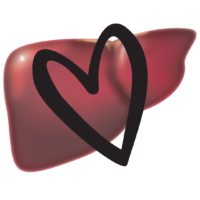Things I have learned this month:
- How to spell rhythm without having to constantly spell check, and
- That I do not sleep as well as I thought.
Why did I have to spell rhythm? Because I’m learning about circadian rhythm. I am still breaking the habit of saying cicadian.
What is the circadian rhythm?
Circadian rhythm (CR from here on out, so I don’t have to keep spelling it) is our internal clock that runs close to 24-hour cycles. It modulates many functions and systems inside our bodies. Almost all living organisms have some sort of CR regulated functions. This make sense since most organisms are exposed to light/dark cycles daily on our 24 hour trip around the sun. Our sleep/wake cycles are modulated primarily by light. Our hormones, body temperature, and metabolism are also affected by circadian rhythms. Even our gut microbiota may be affected by CR.
A disrupted CR can lead to disease, reduced energy levels, depressed mood and a host of others issues. Your sleep is a major indicator of your CR. Having trouble breaking that weight plateau? It could be your CR and sleep. Everyone can benefit from an improved CR and sleep patterns.
Your sleep/wake cycle is an indicator of your CR. I used to think sleeping for 7 hours was enough. Turns out not to be just the quantity, but the quality of your sleep.
Evaluate the quality of your sleep
If you answer ‘yes’ to any of these questions, we have work to do.
1. Do you have to use an alarm clock to wake up?
2. Do you have to drag yourself out of bed?
3. Do you need caffeine first thing in the morning to get moving?
4. Do you feel like a nap after lunch?
5. Do you run out of energy after your workday and skip the gym or other activities?
6. Are you wound up at bedtime and find it difficult to get to sleep?
7. Do you wake up frequently during the night and have trouble getting back to sleep?
All of us can benefit from CR improvement! Don’t just focus on a nighttime routine. Work on that morning routing as well.





